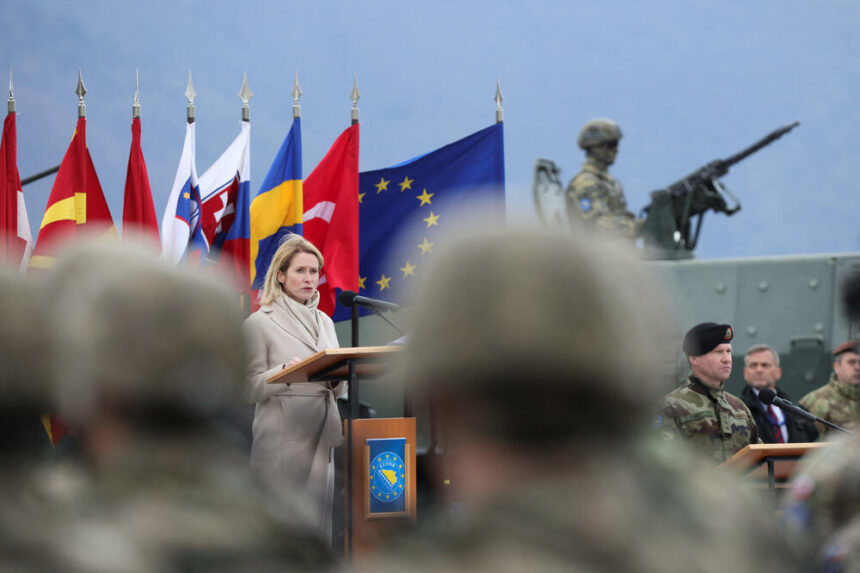European Union foreign policy chief Kaja Kallas issued a strong warning during her visit to Sarajevo, saying the EU will not tolerate threats to the territorial integrity, sovereignty, and constitutional order of Bosnia and Herzegovina.
“Any attempts to break up the country are unacceptable,” Kallas said during her visit to EUFOR peacekeepers.
She accused the leadership of Republika Srpska of undermining Bosnia’s constitutional and legal framework and threatening the fundamental freedoms of all citizens. Kallas stressed that the EU’s decision in March to increase EUFOR troop numbers by several hundred sends a clear message: the Union remains firmly committed to the stability and security of Bosnia and Herzegovina.
Kallas urged political leaders to work together to resolve issues but warned that “inflammatory rhetoric and actions that deepen divisions are dangerous” and go against Bosnia’s EU accession commitments.
Wrapping up her Balkan tour, Kallas also visited Tirana, where she praised Albania’s ambitious plan to complete EU accession talks within two years. Speaking alongside Albanian Prime Minister Edi Rama, she welcomed Albania’s progress but stressed that reforms, especially in the rule of law, are crucial and “never easy.”
Kallas commended Albania’s full alignment with EU sanctions against Russia and its support for Ukraine, calling it a sign of strong commitment to shared European values.
Albania signed a €90 million agreement with the European Investment Bank to reconstruct the railway line between Durrës and Rrogozhinë. Kallas said the project would serve as a key NATO military mobility route and boost regional connectivity.
Additionally, Albania and the EU launched their first security and defense dialogue, aiming to expand cooperation in areas such as hybrid threats, cybersecurity, counterterrorism, and crisis management. The EU has already provided €13 million to strengthen Albania’s defense forces under the European Peace Facility.
Albania will hold parliamentary elections on May 11. Rama’s ruling Socialist Party has made EU membership a central goal, while the conservative opposition accuses the government of corruption and inefficiency.







